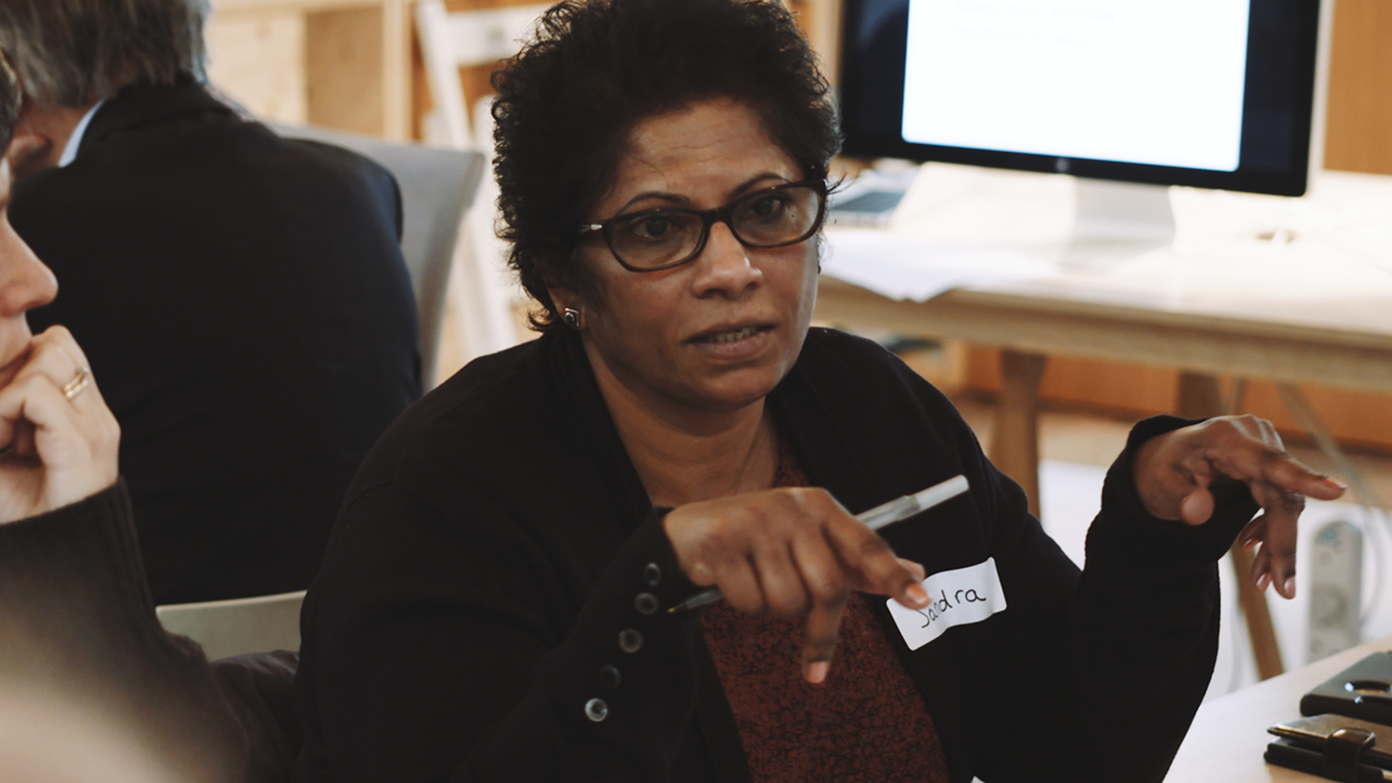by Sandra Jayacodi
As a servicer user who has been involved in research work and was a Collaboration for Leadership in Applied Health Research and Care Research Fellow (2016), I was privileged to be invited to be part of the NIHR Imperial Patient Safety Translational Research Centre‘s (NIHR Imperial PSTRC) Patient and Public Involvement and Engagement (PPIE) strategy working group.
The aim of the working group was to bring together researchers, healthcare professionals, patients, carers and public members to discuss and improve the draft PPIE strategy for the Centre. The event explored the practicalities of implementing the strategy and discussed how patient and public representatives could be supported in getting involved in research.
The event took place in January at the HELIX Studio at St Mary’s Hospital. There was a mix of people from diverse backgrounds, which was good as it brought in different perspectives. It also provided me with an opportunity to network and make new connections.
Learning about patient safety research that goes on at the Centre was interesting and reassuring, as it is addressing current issues for patients and health professionals on the frontline.
I liked the format of the day as it was not lecturer centred, but participant centred. The event started with an icebreaker and networking session, which I found very helpful to settle in and calm my nerves. This was followed by talks from staff about the Centre and an overview of the draft PPIE strategy. We then broke into group discussions, which were facilitated to ensure everyone contributed. The facilitators asked about our experiences and what we would change about the strategy. I felt proud to contribute my experience not only as a service user but also as part of other patient involvement groups.
The aspect that stood out for me at this event was the team’s enthusiasm and professionalism. The team was keen to learn from me about co-production and eager to explore different ways of doing things. Their comments about my passion indicated they were open to new ideas and not dismissive. Commendable was the team’s honesty about the challenges faced by clinicians and researchers in finding and recruiting patient and public members to be involved in research.
In the PPIE strategy, I was particularly excited about the training aspect, as it is crucial to ensure everyone understands what they are involved in, why they are involved and how they can add value. Overall, the event and the strategy were very good. Next time I would like to see a wider and more diverse group involved, using innovative methods of reaching out to patients and the public suggested at the event. This highlighted to me again that training people, who may be new to patient and public involvement, is vital to ensure anyone can be involved.

Really interesting blog and very useful to hear from a service user’s perspective. Agreed that training is vital to ensure service users and members of the public are given skills and support to participate in a meaningful way and avoid the curse of “tokenism”. Encouraging to hear that this is part of strategy and hope resources are provided for this.
Hi Tai, Thanks for your comment. Yes we are currently co-producing a training programme for both patients/carer/public representatives and researchers in partnership with patients/carers and members of the public. We are trying to learning from what already exists. Do get in touch if you have any useful links to resources or training programmes. Many thanks